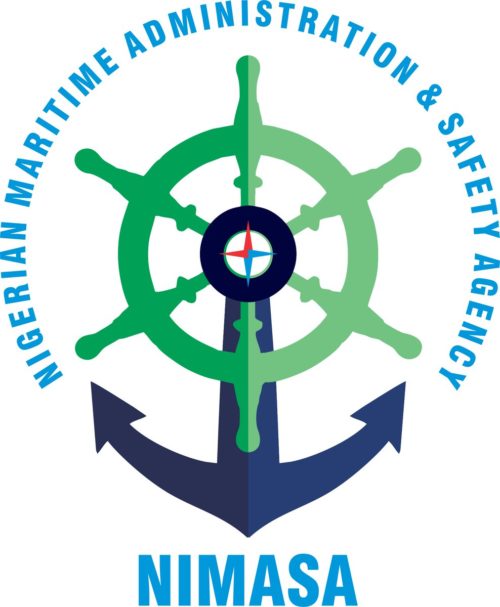The imposition of war risk insurance (WRI) premiums on Nigeria-bound cargo has become a contentious issue, despite the significant decline in piracy in the Gulf of Guinea. Over the past three years, Nigerian importers have paid a staggering $1.5 billion in WRI premiums to international insurance firms, including Lloyd’s of London and Protection and Indemnity Insurance. This substantial financial burden, originally implemented during the peak of Niger Delta militancy and piracy, continues to impact Nigeria’s economy negatively. Industry stakeholders, including shipowners and ship captains, contest the validity of these premiums, arguing that Nigeria, no longer a war-torn or piracy-prone nation, should not be subjected to such charges. They highlight that the premiums inflate freight costs, making Nigerian imports more expensive and hindering the country’s competitiveness in global trade.
The Nigerian Maritime Administration and Safety Agency (NIMASA) has been at the forefront of efforts to eliminate these WRI premiums. Recognizing the detrimental economic consequences, NIMASA has embarked on a vigorous campaign to persuade international shipping companies and insurers to remove the surcharge. The agency emphasizes that the security concerns that initially justified the premiums are no longer prevalent. Indeed, Nigeria has achieved a remarkable track record, with no piracy incidents recorded in over three years. This achievement led to the International Maritime Bureau removing Nigeria from its list of piracy-prone countries in 2021, and the International Bargaining Forum delisting the country from high-risk maritime nations in 2023. Despite these positive developments, international shipping companies have been reluctant to acknowledge Nigeria’s improved security landscape, persisting in their practice of imposing WRI premiums.
NIMASA attributes its success in combating piracy to significant investments in maritime security, particularly through the Deep Blue Project, a collaborative effort with the Nigerian Navy. This initiative has effectively eradicated piracy in Nigerian waters for over 30 consecutive months, an accomplishment lauded by the International Maritime Organization (IMO). The agency has actively collaborated with the IMO and other international bodies to address maritime threats and enhance security, further solidifying Nigeria’s improved risk classification. Even the IMO Secretary General, Arsenio Dominguez, has publicly commended Nigeria’s progress in securing the Gulf of Guinea. However, despite these endorsements and the evident improvement in maritime security, shipowners and insurers remain unconvinced, perpetuating the cycle of financial burden on Nigerian imports.
Under the direction of the Minister of Marine and Blue Economy, Adegboyega Oyetola, NIMASA Director General Dr. Dayo Mobereola has taken the fight to the international stage. He has engaged with various international stakeholders, urging them to support the removal of the WRI premiums. Mobereola met with Dr. Alex Vines, Director of the Africa Programme at Chatham House, who agreed to raise the issue with the United Nations. Furthermore, NIMASA has engaged with prominent global shipping organizations, including the Baltic and International Maritime Council (BIMCO), the International Chamber of Shipping (ICS), and the International Association of Dry Cargo Shipowners (INTERCARGO). In these discussions, Mobereola has underscored Nigeria’s substantial investment in maritime security and the unfairness of the continued penalties imposed through the WRI premiums.
These engagements have yielded some positive responses. The Deputy Secretary General of BIMCO, Stinne Taiger Ivø, acknowledged Nigeria’s progress and suggested that shipowners should spearhead the push for lower premiums. Similarly, Zhou Xianyong of INTERCARGO pledged support for Nigeria’s campaign to be delisted from WRI premium zones. Xianyong emphasized the importance of reducing these premiums for Nigeria’s global trade competitiveness, arguing that lower shipping costs would stimulate international trade, attract foreign investment, and strengthen Nigeria’s position as a major player in the blue economy. NIMASA has also sought the support of Denmark, a significant trading partner, urging the Danish government to leverage its influence on Maersk Line, a major contributor to Nigeria’s GDP, to advocate for a reduction in the premiums.
Despite the international recognition of Nigeria’s improved maritime security, domestic stakeholders remain frustrated. Captain Tajudeen Alao, President of the National Association of Master Mariners, acknowledges the substantial sums remitted for WRI and the resulting inflated freight rates for Nigeria-bound cargo. Shipowner Captain Emmanuel Iheanacho argues that WRI is typically applied to war zones and that its imposition on Nigeria is unjustified, representing a form of economic exploitation. Jonathan Nicol, a former President of the Shippers Association of Lagos State, questions the lack of transparency in the WRI charges and insists that Nigeria’s peaceful status should exempt it from such premiums. The consensus among these stakeholders is clear: the continued levying of WRI premiums on Nigeria-bound cargo is unwarranted and economically damaging, requiring immediate action from international shipping companies and insurers to rectify this unfair practice.


